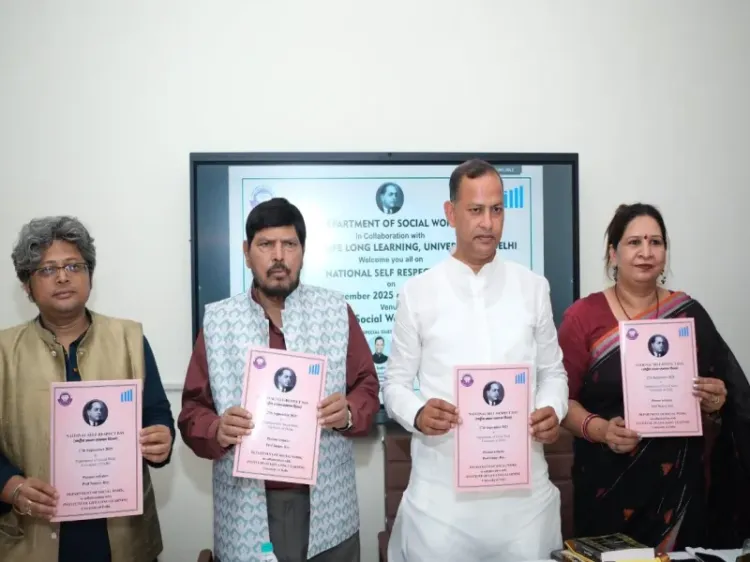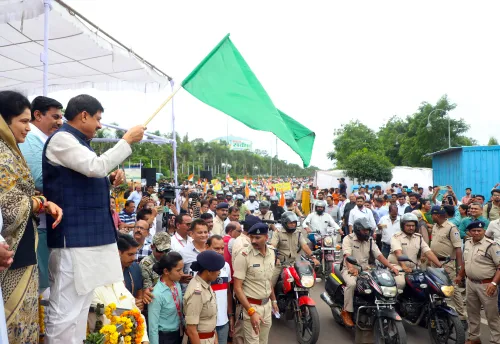How Did Delhi Minister Ravinder Indraj Singh Honor B.R. Ambedkar on National Self-Respect Day?

Synopsis
Key Takeaways
- National Self-Respect Day commemorates the legacy of B.R. Ambedkar.
- The importance of justice and equality is emphasized by government officials.
- Ambedkar's fight for women's rights and marginalized communities continues to inspire.
- The event highlights the ongoing need for social empowerment.
- Delhi government’s commitment to uphold Ambedkar's ideals is reaffirmed.
New Delhi, Sep 27 (NationPress) Delhi’s Social Welfare Minister Ravinder Indraj Singh stated on Saturday that the government is committed to upholding the principles of Bharat Ratna Babasaheb Dr. B.R. Ambedkar to promote justice, equality, and social empowerment.
During the event for National Self-Respect Day (Rashtriya Aatma Samman Divas) organized by the Department of Social Work at Delhi University, Singh remarked: "The life of Bharat Ratna Babasaheb Dr. B.R. Ambedkar illustrates that truth and self-respect hold greater significance than power."
Union Minister of State for Social Justice and Empowerment Ramdas Athawale also participated in this significant event.
The Delhi Cabinet Minister emphasized that on September 27, 1951, Dr. Ambedkar resigned from his ministerial role in the Jawaharlal Nehru government to safeguard the rights of women and marginalized communities.
"This is the reason why we commemorate this day as National Self-Respect Day," he explained. "It was not merely a personal choice of Babasaheb, but a historic action aimed at steering society towards justice and equality."
He pointed out that Dr. Ambedkar fought for equal rights for women regarding property, marriage, and inheritance through the Hindu Code Bill, yet those demands were overlooked by the government of that era.
Singh highlighted that Babasaheb devoted his life to the empowerment of the poor, Dalits, marginalized groups, and women.
Furthermore, he noted that Dr. Ambedkar provided India with a Constitution that guarantees every citizen the rights of equality, liberty, and fraternity.
He fought tirelessly against untouchability, caste discrimination, and social injustice. Dr. Ambedkar also laid the groundwork for reservations in education and employment for Dalits, backward classes, and underprivileged communities to foster social equality.
The Delhi SC/ST/OBC Welfare Minister affirmed that Dr. Ambedkar’s legacy continues to motivate us.
"The Delhi government is dedicated to ensuring equal opportunities and dignity for all sections of society, guided by his visionary outlook," he stated.
In attendance were Delhi University Vice-Chancellor Prof. Yogesh Singh, Kalindi College Principal Prof. Meena Charanda, and Dean of the Faculty of Sociology Prof. Sanjoy Roy.









